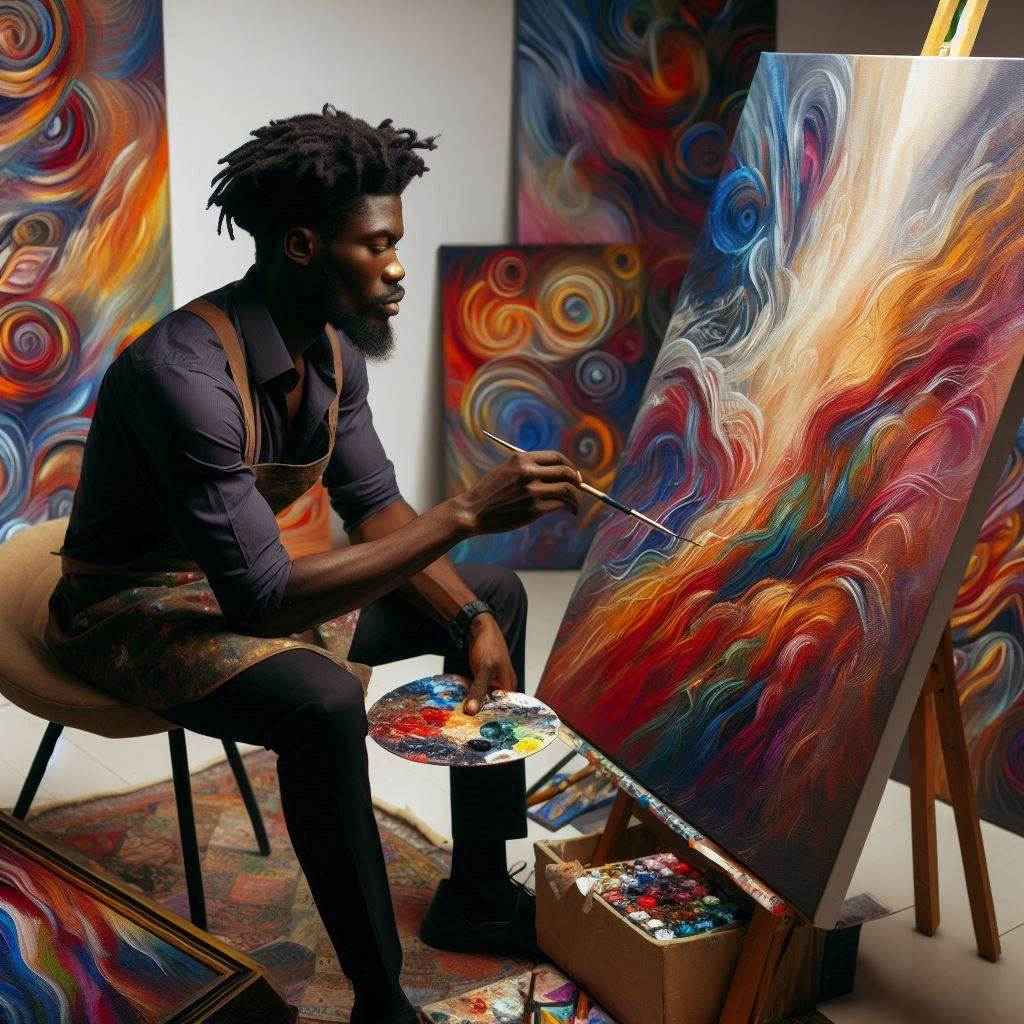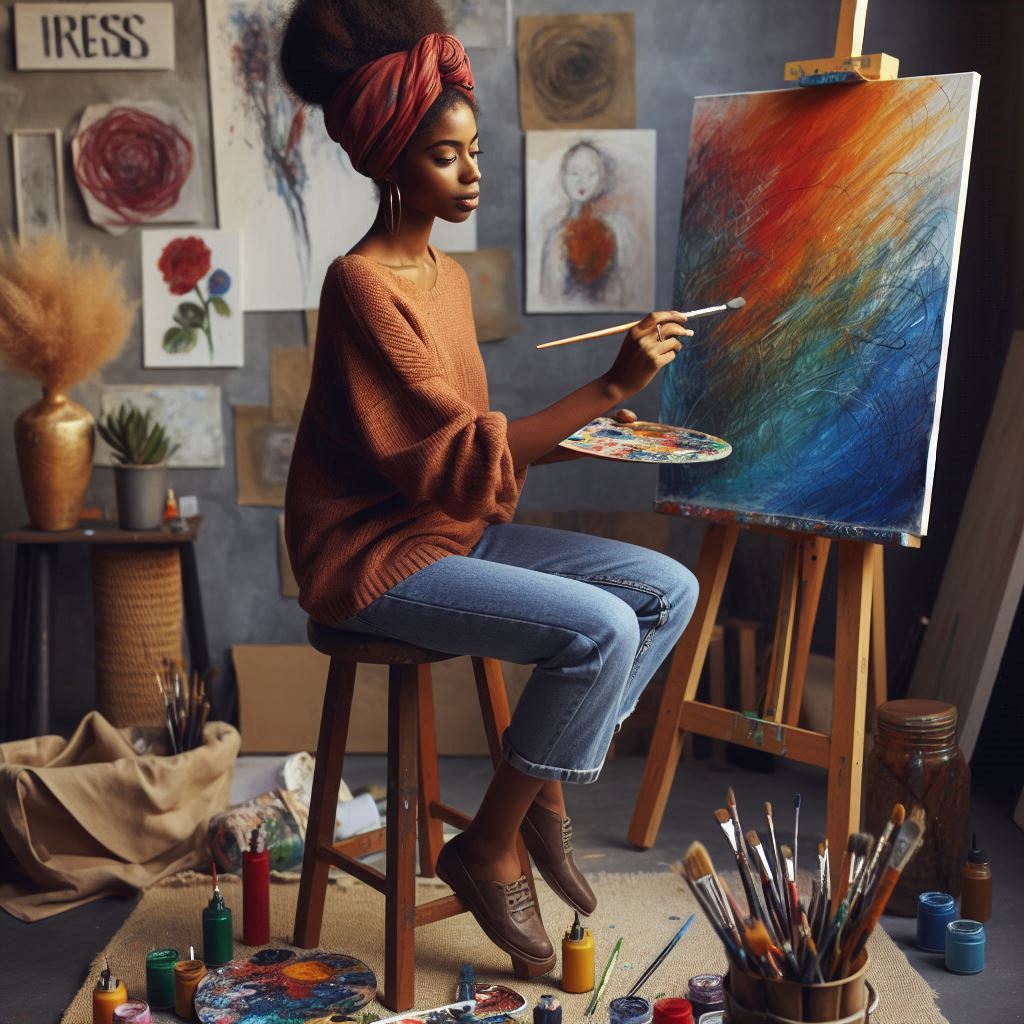Introduction
The Nigerian education system comprises primary, secondary, and tertiary levels, emphasizing academic subjects.
However, arts education is essential.
Nigeria’s education system emphasizes academic subjects, but arts education is often overlooked.
It primarily focuses on STEM fields.
Arts education nurtures creativity and critical thinking skills, vital for holistic student development.
It encourages self-expression and innovation.
Arts education provides students with a platform to explore their creativity through various forms of expression.
Engaging with arts disciplines encourages students to analyze, interpret, and evaluate ideas, enhancing critical thinking skills.
Arts education exposes students to diverse cultural perspectives, fostering empathy and understanding in a multicultural society.
Through arts education, students learn to approach problems from multiple perspectives, enhancing their problem-solving abilities.
Engagement with the arts hones students’ communication skills, enabling them to express themselves effectively through various mediums.
Arts education often involves collaborative projects, promoting teamwork and interpersonal skills among students.
Exploring emotions and themes in the arts helps students develop emotional intelligence, enhancing their self-awareness and empathy.
Integrating arts education into the curriculum ensures students receive a well-rounded education that nurtures their holistic development.
Basically, arts education plays a crucial role in the Nigerian education system.
It fosters creativity, critical thinking, and cultural understanding.
Historical Perspective
In order to understand the role of arts in the Nigerian education system, it is essential to delve into the traditional role of arts in Nigerian culture and education, as well as the impact of colonization on the education system and arts education.
Traditional Role of Arts in Nigerian Culture and Education
- Arts have always held a significant place in Nigerian culture, with various art forms such as music, dance, storytelling, and visual arts playing crucial roles in conveying historical narratives, cultural values, and traditions.
- In traditional Nigerian education, arts were integrated into the curriculum as a means to pass down knowledge from generation to generation, fostering creativity, critical thinking, and social cohesion among students.
- Artisans and craftsmen in Nigerian communities were highly respected for their skills, and their work was considered essential in preserving cultural heritage and identity.
- Art forms such as tribal masks, beadwork, pottery, and textiles were not only expressions of creativity but also symbols of status, spirituality, and communal identity.
Impact of Colonization on the Education System and Arts Education
- Colonization, particularly by the British, had a profound impact on the Nigerian education system and the role of arts education in schools.
- During colonial rule, the British imposed their educational system, which prioritized subjects like mathematics, sciences, and English language, while downplaying traditional arts and cultural practices.
- Western education systems marginalized indigenous art forms, leading to a decline in the teaching and appreciation of Nigerian arts in schools.
- Many traditional art forms were deemed as primitive or inferior by colonial authorities, causing a shift towards Westernized forms of education that neglected indigenous knowledge and heritage.
- As a result, generations of Nigerian students were deprived of exposure to their cultural arts and heritage, leading to a disconnect between the younger generation and traditional artistic practices.
Overall, the historical perspective reveals the significant impact of traditional arts on Nigerian culture and education, as well as the detrimental consequences of colonization on the preservation and promotion of indigenous arts in the education system.
Read: Psychological Impact of COVID-19 on Nigerians
Current Status of Arts Education in Nigeria
Examination of the curriculum and availability of arts programs in schools
An examination of the curriculum and availability of arts programs in schools reveals both strengths and weaknesses in the Nigerian education system.
On one hand, arts education is included in the curriculum of primary and secondary schools across the country, emphasizing the importance of creativity and self-expression.
However, the implementation of arts programs varies greatly between urban and rural areas, with urban schools often having more resources and opportunities for students.
Despite the recognition of the value of arts education, there are significant challenges faced in promoting it effectively in schools.
Challenges Faced in Promoting Arts Education
- Lack of Funding: Many schools struggle to allocate sufficient funds for arts programs, resulting in limited resources and opportunities for students.
- Lack of Resources: Schools often lack the necessary materials, equipment, and facilities to support a comprehensive arts education curriculum.
- Focus on Academic Subjects: The emphasis on academic subjects such as math and science can sometimes overshadow the importance of arts education in schools.
- Teacher Training: There is a shortage of qualified arts teachers in many schools, leading to a lack of expertise and guidance for students interested in pursuing the arts.
- Infrastructure Issues: Some schools lack adequate infrastructure to support arts education, including art studios, performance spaces, and exhibition areas.
In spite of these challenges, efforts are being made to improve the status of arts education in Nigeria through advocacy, partnerships with organizations, and government initiatives.
By addressing the issues of funding, resources, teacher training, and infrastructure, the Nigerian education system can better cultivate the artistic talents of its students and promote a well-rounded education.
Read: Psychology and Counseling Services in Nigerian Schools
Benefits of Arts Education
Arts education enhances cognitive skills, emotional intelligence, and social development in Nigerian students.
How arts education enhances cognitive skills, emotional intelligence, and social development
Engaging with arts disciplines stimulates critical thinking, creativity, and problem-solving abilities.
Through music, dance, drama, and visual arts, students learn to think outside the box, analyze complex situations, and generate innovative solutions.
Moreover, artistic expression fosters emotional intelligence by encouraging students to explore and understand their feelings, as well as the emotions of others.
By delving into various art forms, students develop empathy, self-awareness, and resilience, which are essential components of emotional intelligence.
Furthermore, arts education promotes social development by providing opportunities for collaboration, communication, and teamwork.
Students engage in group projects, performances, and exhibitions, learning to communicate effectively, negotiate differences, and work towards common goals.
These collaborative experiences not only enhance social skills but also build a sense of community and belonging among students.
Case studies or examples of successful integration of arts in education
In Lagos, schools have integrated music, dance, and drama into the curriculum, fostering holistic student development.
Similarly, in Abuja, visual arts programs have boosted students’ creativity and academic performance.
Arts education provides a platform for students to explore their creativity and express themselves.
It cultivates a deeper understanding of cultural heritage and promotes social cohesion.
In Kaduna, a theater program has helped students build confidence and resilience, positively impacting their academic and personal lives.
Similarly, in Enugu, poetry workshops have encouraged students to explore their emotions and perspectives.
The integration of arts into the Nigerian education system has shown positive outcomes.
Students demonstrate improved academic performance, increased self-confidence, and enhanced social skills.
Arts education also prepares students for future careers by fostering adaptability, communication skills, and innovation.
Employers value candidates with a strong foundation in the arts.
Overall, arts education enriches the learning experience and contributes to the holistic development of Nigerian students.
It nurtures creativity, fosters critical thinking, and promotes cultural appreciation.
Overall, the role of arts in the Nigerian education system is vital.
It enhances cognitive skills, emotional intelligence, and social development.
Through successful integration, arts education empowers students to thrive academically and personally.
Read: How Nigerian Schools Address Student Psychology

Role of teachers and educators
Training teachers in arts education and incorporating creative teaching methods are crucial for holistic learning.
Importance of training teachers in arts education and incorporating creative teaching methods
Teachers play a pivotal role in delivering arts education effectively.
Training equips them with the necessary skills to engage students creatively.
Creative teaching methods, such as project-based learning and experiential activities, make learning enjoyable and meaningful.
By integrating arts into the curriculum, educators can cater to diverse learning styles and foster a love for creativity and expression in students.
Advocacy for professional development and support for arts educators
Advocating for professional development opportunities and support for arts educators is essential.
Continued training and resources empower teachers to deliver high-quality arts education that meets the needs of students.
Providing mentorship programs, workshops, and access to educational materials ensures that arts educators stay updated with best practices and innovative teaching techniques.
Additionally, advocating for adequate funding and recognition for arts education programs helps sustain their presence in schools and communities.
By investing in the professional growth of arts educators, we invest in the future of arts education in Nigeria.
Read: Impact of Christian Religious Studies on Nigerian Society
Recommendations for improvement
Strategies for enhancing the quality and accessibility of arts education in Nigeria
Integrating arts education into the national curriculum ensures that all students have access to creative learning opportunities.
Providing adequate funding and resources for arts programs in schools is essential.
This includes investing in art supplies, facilities, and qualified arts educators.
Implementing policies that prioritize arts education and recognize its value in the education system is necessary.
Advocating for the inclusion of arts subjects in standardized testing and assessments ensures that arts education receives the same attention as other academic subjects.
Additionally, promoting interdisciplinary approaches that integrate arts with STEM subjects fosters creativity, innovation, and problem-solving skills in students.
Encouraging community involvement in arts education through partnerships with local artists, cultural institutions, and businesses enhances students’ exposure to diverse art forms and career opportunities.
Offering extracurricular arts programs and enrichment activities provides students with additional opportunities for creative expression and skill development.
Providing professional development opportunities for teachers ensures that they are equipped with the necessary knowledge and skills to effectively deliver arts education.
This includes workshops, seminars, and training sessions on arts integration techniques and teaching strategies.
Collaboration between government, schools, and arts organizations to promote arts education
Government, schools, and arts organizations must work together to promote arts education effectively.
Government initiatives should prioritize arts education funding and policy development.
Schools should prioritize arts education in their curriculum and allocate resources accordingly.
Arts organizations can provide support through educational programs, resources, and partnerships with schools.
Together, these stakeholders can create a comprehensive and inclusive arts education ecosystem that benefits all students.
By collaborating, we can ensure that arts education remains a cornerstone of the Nigerian education system, enriching the lives of students and contributing to the cultural vitality of the nation.
Conclusion
In summarizing, it’s evident that the arts are not just an optional add-on but an integral component of the Nigerian education system.
They serve as catalysts for creativity, critical thinking, and cultural understanding.
By nurturing artistic talents and encouraging self-expression, arts education enriches students’ lives and equips them with essential skills for success in an ever-changing world.
Given these profound benefits, it is imperative for stakeholders—government bodies, educational institutions, community organizations, and parents—to prioritize arts education.
This involves not only allocating sufficient resources but also integrating arts seamlessly into the curriculum and providing opportunities for professional development for educators.
As we move forward, let us collectively commit to ensuring that every Nigerian student receives a well-rounded education—one that encompasses the arts and fosters holistic development.
By doing so, we pave the way for a brighter future filled with creativity, innovation, and cultural richness.




